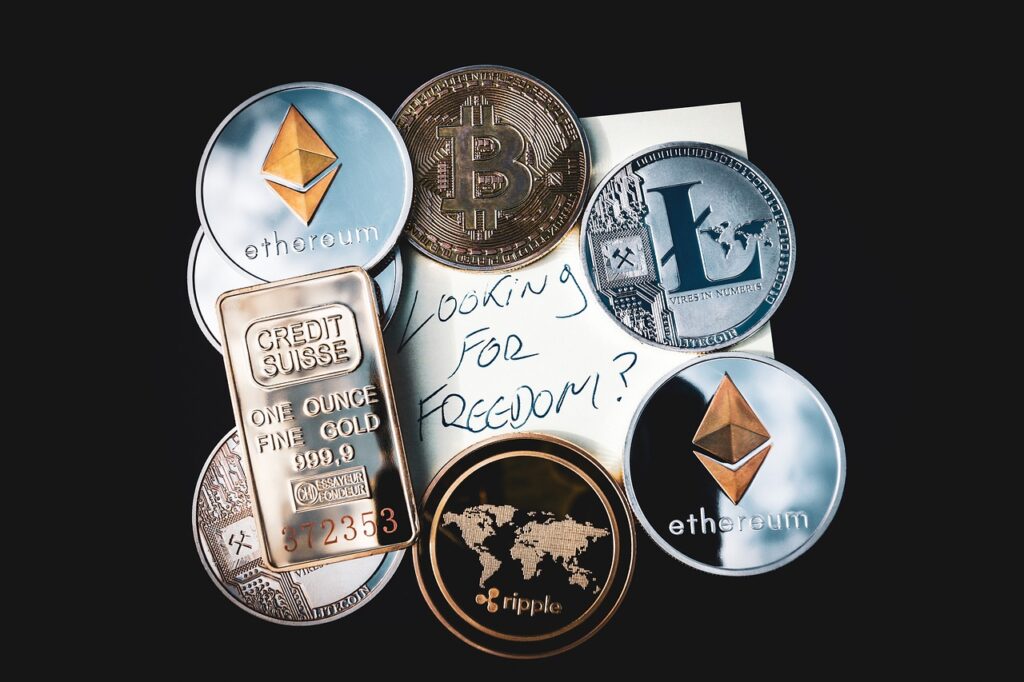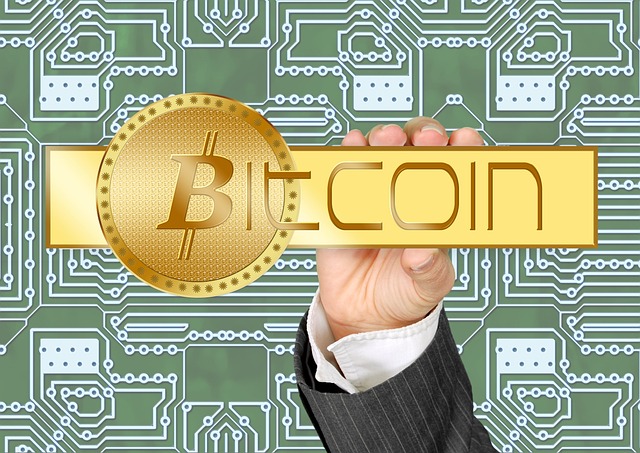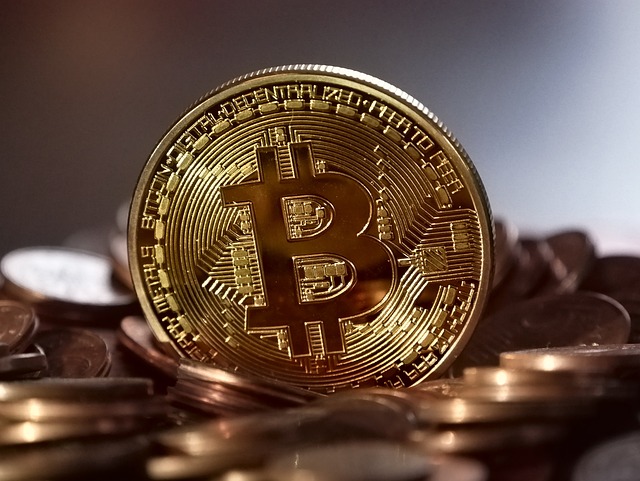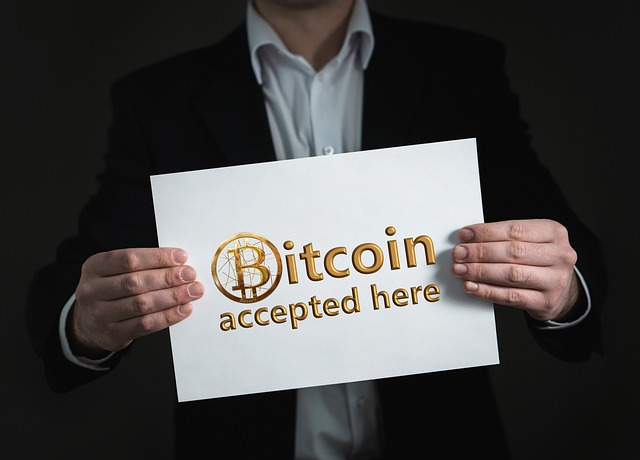DeFi’s Double-Edged Sword: Analyzing the Pros and Cons
DeFi’s Double-Edged Sword: Analyzing the Pros and Cons

What is DeFi and why is it gaining popularity?
Decentralized Finance, or DeFi for short, is a term that has been buzzing around the financial world lately. But what exactly is DeFi and why is it becoming so popular? Well, simply put, DeFi is a blockchain-based financial system that aims to revolutionize traditional financial services by eliminating intermediaries and allowing for direct peer-to-peer transactions.
One of the main reasons behind the surging popularity of DeFi is its ability to provide financial services to a much larger population. Unlike traditional banking services that often come with strict criteria and requirements, DeFi platforms are open to anyone with an internet connection and a smartphone. This inclusivity empowers individuals in underserved regions who previously had limited access to financial services, giving them the opportunity to participate in various financial activities such as lending, borrowing, and earning interest on their assets. With the rise of smartphone usage worldwide, DeFi opens up a whole new world of financial possibilities for millions of people.
Understanding the advantages of DeFi
DeFi, short for Decentralized Finance, has been gaining immense popularity in recent years. This innovative concept brings a range of advantages that are revolutionizing the traditional financial landscape. One of the key advantages of DeFi is its ability to provide financial services to anyone with an internet connection, without the need for intermediaries such as banks. This inclusivity eliminates many barriers that individuals face when accessing financial services, particularly in underbanked regions. Moreover, DeFi platforms are open to all users, regardless of their location or financial status, fostering a more accessible and inclusive financial ecosystem.
Another advantage of DeFi is the transparency it offers. Unlike traditional financial systems, which often operate behind closed doors, DeFi utilizes blockchain technology, ensuring that transactions and financial activities are recorded on a public and immutable ledger. This transparency not only enhances trust and accountability but also helps prevent fraud and manipulation. Additionally, DeFi is decentralized, meaning that it operates without a central authority. This distributed nature is particularly valuable as it eliminates the risk of a single point of failure, making the system more resilient and secure. Overall, these advantages of DeFi contribute to a more efficient, accessible, and transparent financial system that empowers individuals worldwide.
The potential risks involved in DeFi investments
Investing in decentralized finance (DeFi) can offer exciting opportunities for financial growth and innovation. However, it is important for investors to be aware of the potential risks involved.


Another risk to consider is the security of DeFi platforms. While the decentralized nature of these platforms provides certain benefits, it also opens up avenues for potential hacking and security breaches. Since DeFi relies on smart contracts, any vulnerabilities in the code can be exploited by malicious actors. It is therefore crucial for investors to carefully research and evaluate the security measures implemented by the platforms they choose to engage with. It is always wise to exercise caution and only invest funds that one is willing to potentially lose in this evolving and sometimes unpredictable investment space.
Exploring the decentralized nature of DeFi platforms
Decentralized Finance (DeFi) platforms are revolutionizing the traditional financial system by eliminating the need for intermediaries such as banks and lending institutions. Instead, these platforms operate on a peer-to-peer network, allowing users to interact directly with one another. This decentralized nature not only fosters transparency but also enables individuals to have complete control over their finances.
One of the key advantages of decentralized platforms is the removal of geographical restrictions. In traditional finance, users often face limitations when it comes to accessing financial services, especially in underserved regions. However, with DeFi, anyone with an internet connection can participate, regardless of their location. This accessibility opens up a world of opportunities for those who have been previously excluded from the financial system. Additionally, the decentralized nature ensures that there is no single point of failure, reducing the risk of system-wide financial crises.
The role of smart contracts in DeFi
Smart contracts play a pivotal role in the flourishing world of decentralized finance (DeFi). These self-executing contracts are powered by blockchain technology, enabling seamless and trustless interactions between parties. By eliminating the need for intermediaries, smart contracts reduce costs and enhance efficiency in financial transactions. In the realm of DeFi, these smart contracts are used to automate a wide range of processes, such as lending, borrowing, trading, and asset management. They provide programmable rules and conditions that are digitally enforced, ensuring transparency and adherence to predetermined terms. With the increasing adoption of smart contracts, DeFi platforms are witnessing a transformation in the way financial services are delivered and consumed.
One of the key advantages of smart contracts in DeFi is their ability to ensure secure and transparent transactions. Unlike traditional financial systems, which often involve multiple intermediaries and manual processes, smart contracts streamline the entire process by automating it on a blockchain. This not only reduces the likelihood of human error but also minimizes the risk of fraud or manipulation. Moreover, the immutability of blockchain ensures that once a smart contract is deployed, it cannot be altered or tampered with, providing a high level of security and trust for all parties involved. The efficiency and transparency offered by smart contracts have paved the way for innovative financial applications and have the potential to reshape the future of finance.
The accessibility and inclusivity of DeFi for all users
DeFi, short for Decentralized Finance, has been gaining significant attention in recent times due to its remarkable accessibility and inclusivity for all users. Unlike traditional financial systems that often come with numerous barriers and restrictions, DeFi opens up a world of financial opportunities to anyone with an internet connection. This democratization of finance allows individuals from all walks of life to participate in various financial activities, such as lending, borrowing, and investing, without the need for intermediaries or centralized institutions.
One of the key advantages of DeFi is its user-friendly nature. With the rise of user-friendly interfaces and intuitive platforms, even individuals with limited knowledge or experience in finance can easily navigate through DeFi applications. These platforms often provide step-by-step guides, tutorials, and support communities to assist newcomers in understanding and utilizing the various DeFi protocols. Additionally, the use of blockchain technology and smart contracts ensures transparency, security, and efficiency in financial transactions, further enhancing the accessibility and inclusivity of DeFi for all users.
Examining the potential for high returns in DeFi investments
When it comes to investing, one of the key factors that attracts individuals to DeFi is the potential for high returns. The decentralized nature of DeFi platforms allows for new and innovative investment opportunities that can yield significant profits. Unlike traditional financial systems, DeFi operates on a global scale and offers access to a wide range of financial products that were previously only available to institutional investors.
One of the main drivers of high returns in DeFi is the concept of liquidity mining, also known as yield farming. This involves lending or staking digital assets on decentralized platforms, and in return, earning tokens as rewards. These rewards can sometimes be significantly higher than traditional interest rates, offering investors the opportunity to earn substantial profits simply by holding and participating in the DeFi ecosystem. Additionally, due to the rapid growth and evolving nature of DeFi, early adopters have often been able to capitalize on low entry prices and benefit from the subsequent increase in the value of their investments.
The challenges of regulation and security in the DeFi space
Regulation and security are two major challenges that the DeFi space faces as it continues to grow and evolve. The decentralized nature of DeFi platforms makes it difficult for traditional regulatory bodies to effectively monitor and enforce compliance. This lack of regulation can leave investors exposed to potential scams or fraudulent activities, as there are limited mechanisms in place to protect their interests. Furthermore, the absence of intermediaries in DeFi transactions also means that there is a higher risk of security breaches and hacks, as there are no centralized entities responsible for safeguarding user funds.
Overall, while the decentralized nature of DeFi brings many benefits, it also presents significant challenges in terms of regulation and security. As the industry continues to mature, it is crucial for regulators to develop frameworks that strike a balance between innovation and protecting investor interests. Additionally, the DeFi community itself must prioritize security measures and adopt best practices to mitigate potential risks. Only with a robust regulatory framework and enhanced security protocols can DeFi achieve its full potential as a game-changer in the financial world.
The impact of DeFi on traditional financial institutions
Traditional financial institutions have long been the gatekeepers of the global economy, with their centralized systems and intermediaries dictating the flow of capital. However, with the rise of DeFi, these institutions are now facing a disruptive force that challenges their dominance. DeFi, short for decentralized finance, empowers users by providing them with direct access to financial services without the need for intermediaries such as banks or brokers. This shift in power threatens to dismantle the status quo, as traditional financial institutions are forced to adapt or risk becoming obsolete.
One of the main impacts of DeFi on traditional financial institutions is the disintermediation of transactions. In traditional finance, intermediaries play a vital role in facilitating transactions and ensuring trust between parties. However, with DeFi platforms utilizing smart contracts and blockchain technology, these intermediaries are rendered unnecessary. This not only reduces costs for users but also eliminates the risk of centralized points of failure. As a result, traditional financial institutions face the challenge of redefining their role in a decentralized world, where trust is established through code rather than through institutions.
Considering the future of DeFi and its potential impact on the global economy
The future of decentralized finance (DeFi) holds immense potential for transforming the global economy. As this innovative concept continues to gain traction, the impact it may have on traditional financial institutions cannot be underestimated. Unlike traditional centralized systems, DeFi offers a more inclusive and accessible platform for users, allowing them to participate in financial activities without needing intermediaries. This level of democratization has the potential to disrupt traditional banking systems and redefine the way people engage with financial services.
One of the key advantages of DeFi is its ability to provide high returns on investments. Through various decentralized applications (dApps), users can engage in activities such as decentralized lending and borrowing, liquidity mining, and yield farming. These avenues enable individuals to earn passive income and possibly generate significant returns on their investments. With the potential for higher profits, more and more individuals are turning to DeFi as an alternative to traditional investment options. However, it is crucial to recognize that along with the potential rewards, DeFi investments also come with inherent risks that users must carefully evaluate.
What is DeFi and why is it gaining popularity?
DeFi, short for Decentralized Finance, refers to the use of blockchain technology and cryptocurrencies to recreate traditional financial systems in a decentralized manner. It’s gaining popularity because it offers various advantages such as accessibility, transparency, and the ability to bypass intermediaries.
What are the advantages of DeFi?
DeFi offers advantages like open access to financial services for the unbanked, increased transparency, faster transactions, lower fees, and the ability to earn passive income through lending or staking.
Are there any risks involved in DeFi investments?
Yes, like any investment, DeFi carries risks. The main risks include smart contract vulnerabilities, hacking, scams, and market volatility.

How are DeFi platforms decentralized?
DeFi platforms are decentralized because they operate on blockchain networks, which are distributed ledgers maintained by a network of computers (nodes). This eliminates the need for intermediaries like banks and allows users to have full control over their funds.
What is the role of smart contracts in DeFi?
Smart contracts are self-executing agreements coded on the blockchain. In DeFi, they automate financial transactions, removing the need for intermediaries. Smart contracts ensure transparency, security, and efficiency in DeFi protocols.
Is DeFi accessible to all users?
Yes, one of the significant advantages of DeFi is its accessibility. Anyone with an internet connection and a smartphone or computer can access DeFi platforms. It opens up financial services to the unbanked and underbanked populations worldwide.
Can I expect high returns in DeFi investments?
While DeFi investments have the potential for high returns, it’s important to note that they also come with high risks. The market is still developing, and there are no guarantees. It’s crucial to approach DeFi investments with caution and only invest what you can afford to lose.
What are the challenges of regulation and security in the DeFi space?
DeFi operates in a regulatory gray area, and regulations are still evolving. This lack of clarity creates challenges for both users and regulators. Additionally, security is a concern as hackers can exploit vulnerabilities in smart contracts or centralized exchanges integrated with DeFi platforms.
How does DeFi impact traditional financial institutions?
DeFi poses a potential threat to traditional financial institutions as it offers alternative financial services that are faster, more accessible, and often more cost-effective. However, it also presents opportunities for collaboration and innovation as traditional institutions explore ways to incorporate DeFi into their offerings.
What is the future of DeFi and its potential impact on the global economy?
The future of DeFi looks promising, with continued growth and innovation. It has the potential to reshape the global economy by providing financial services to the unbanked, increasing financial inclusion, and disrupting traditional financial systems. However, challenges such as regulation and security need to be addressed for its full potential to be realized.
Todays Featured Product:
Buy, exchange and grow your crypto securely with a Ledger hardware wallet, combined with the Ledger Live app. It’s never been easier to keep your crypto safe and accessible. Buy direct from Ledger.com and get todays Special Offers Here.




